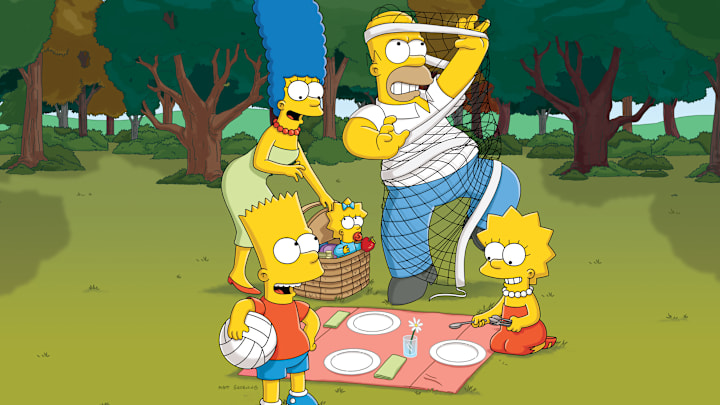Earth Day may be over, but The Simpsons are still celebrating it! Besides, our planet, which showers us with the five elements that sustain life, deserves to be celebrated every day. What's more is that we have a reason to celebrate, thanks to the Disney+ exclusive, "Yellow Planet!"
"Yellow Planet" dropped on April 22 and is the third The Simpsons episode exclusive to Disney+. The 22-minute installment is actually part of season 36, much to our surprise. Yet, "Yellow Planet added a little extra zing to animated comedy, and it's worth mentioning that I nearly died laughing throughout. I even learned something new about the Animal Kingdom, which is always a massive plus, as I'm an animal lover.
In "Yellow Planet," The Simpsons characters are redesigned as some of the world's intricate creatures and follow essential survival journeys while retaining their raw snarkiness. If you ask me, "Yellow Planet" is similar to a Discovery Channel program where the fauna are up close and personal, but the cameramen have zero intervention.
Here's what happened on The Simpsons "Yellow Planet"
During our exploration, where are presented with the "Dregs" side of nature. Dregs are the weird or less-frequented filmed animals, as all others have been documented.
A pair of the dregs is Homer and Marge as the oceanic species, the beluga and narwhal. Now, these two are very much in love and do whatever they can to survive as a pair. I'm saying "pair," as belugas and narwhals can reproduce, a little fact that I've picked up while viewing "Yellow Planet."
Speaking of reproduction, Homer and Marge created the "narluga," who has taken on Maggie's characterization. Yes, narlugas are real, so it made sense for writer J. Stewart Burns and the natural cycle to take over.
As for the other kids, Bart becomes a bratty marine iguana. He, along his classmates, are hatched on an isolated island and must fight against a snake group to live. The predicament is hilarious, as the little guys are scrambling, while Bart keeps his "Dude with the baddest 'tude" persona.
Lisa's innovations with twigs help her finch flock with food consumption, but technological advancements in the wood division lead to disastrous results. This is why birds tend to migrate, not to tech, but to a limited food supply and environmental changes.
Then, even as a mandrill, Flanders dismisses Darwin's evolution of species and strictly affirms that we're created in God's unique vision, although his two monkey kids are skeptics. You can take the man out of church, but you can't take the church out of the man.
"Yellow Planet" was a fresh take on an existing material template, and it appeared that Disney had a lot of fun during its creation process. The Disney+ exclusive also marked the very last performance (in production order) of Pamela Hayden as her characters.
Overall, I loved "Yellow Planet" throughout. It's wit and content offered a new vision on Earth Day, and how we must be more considerate than ever with species' conversation.
